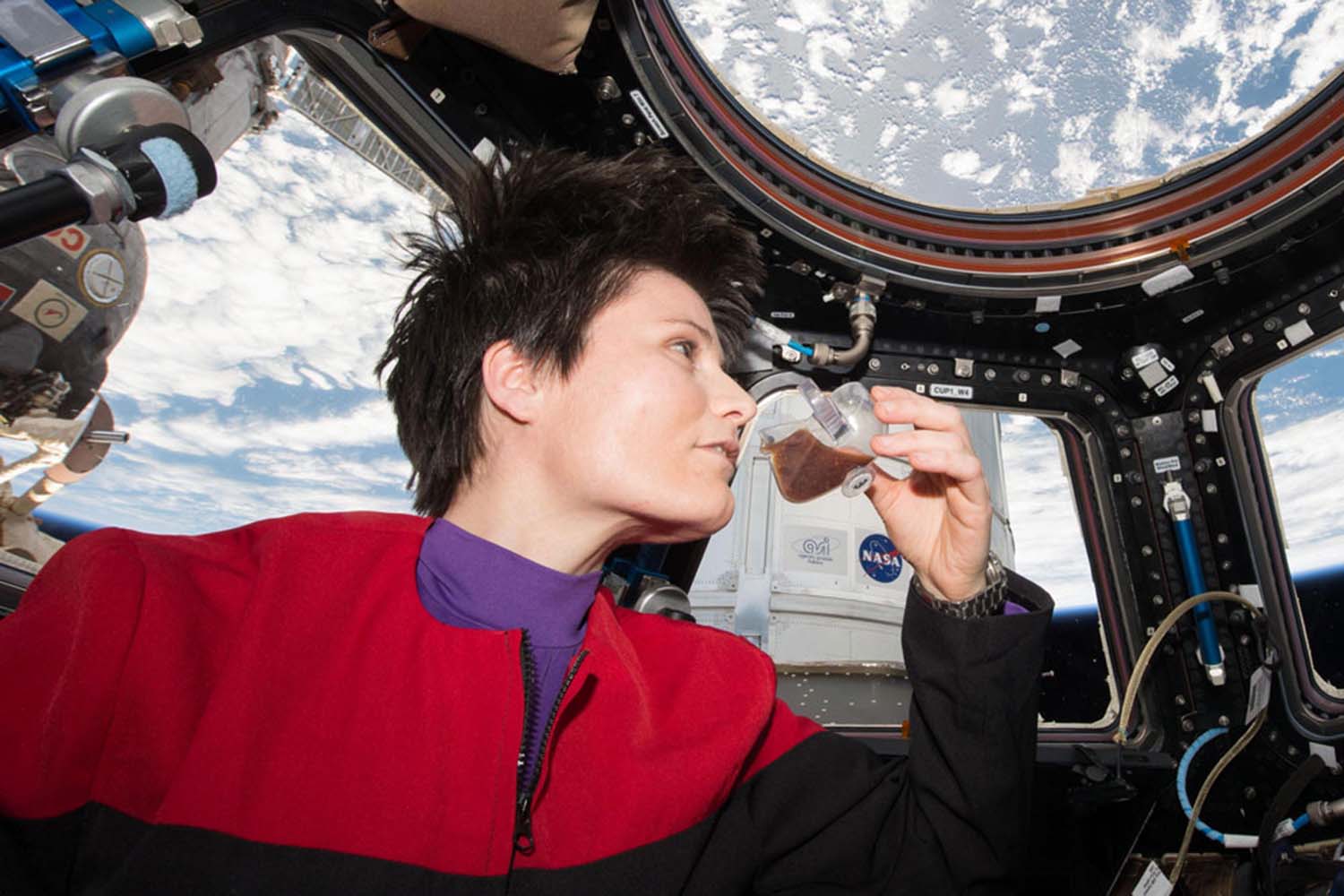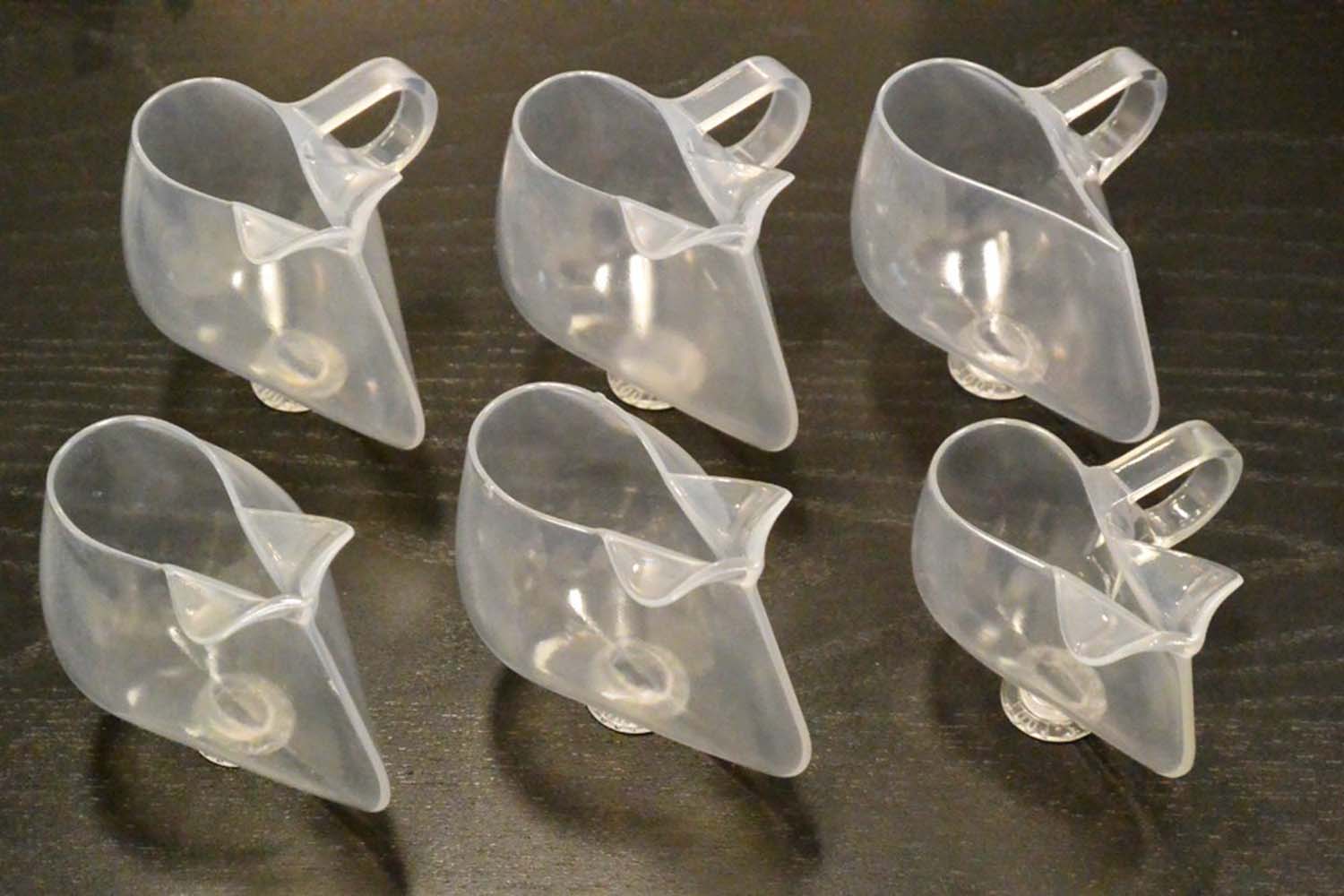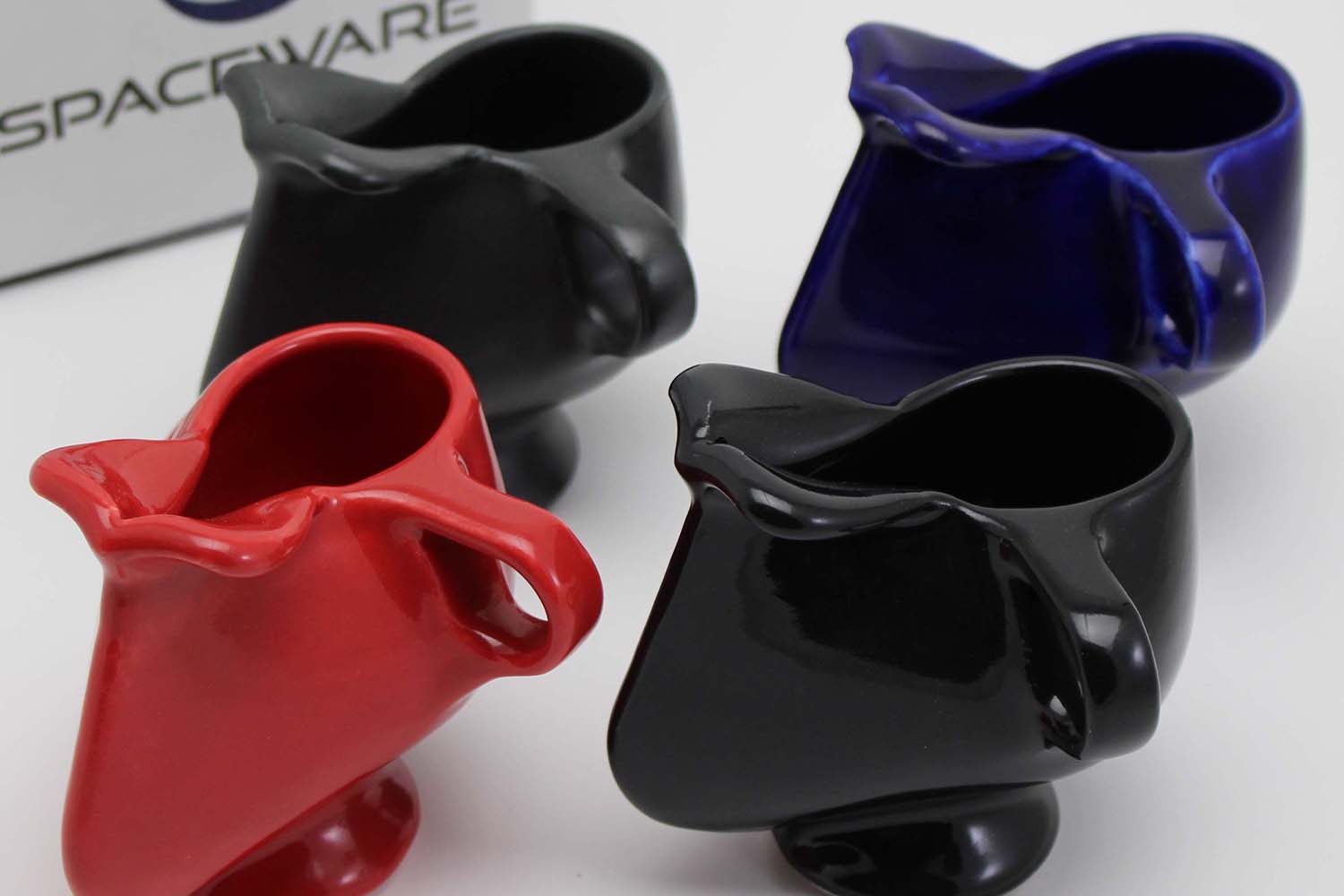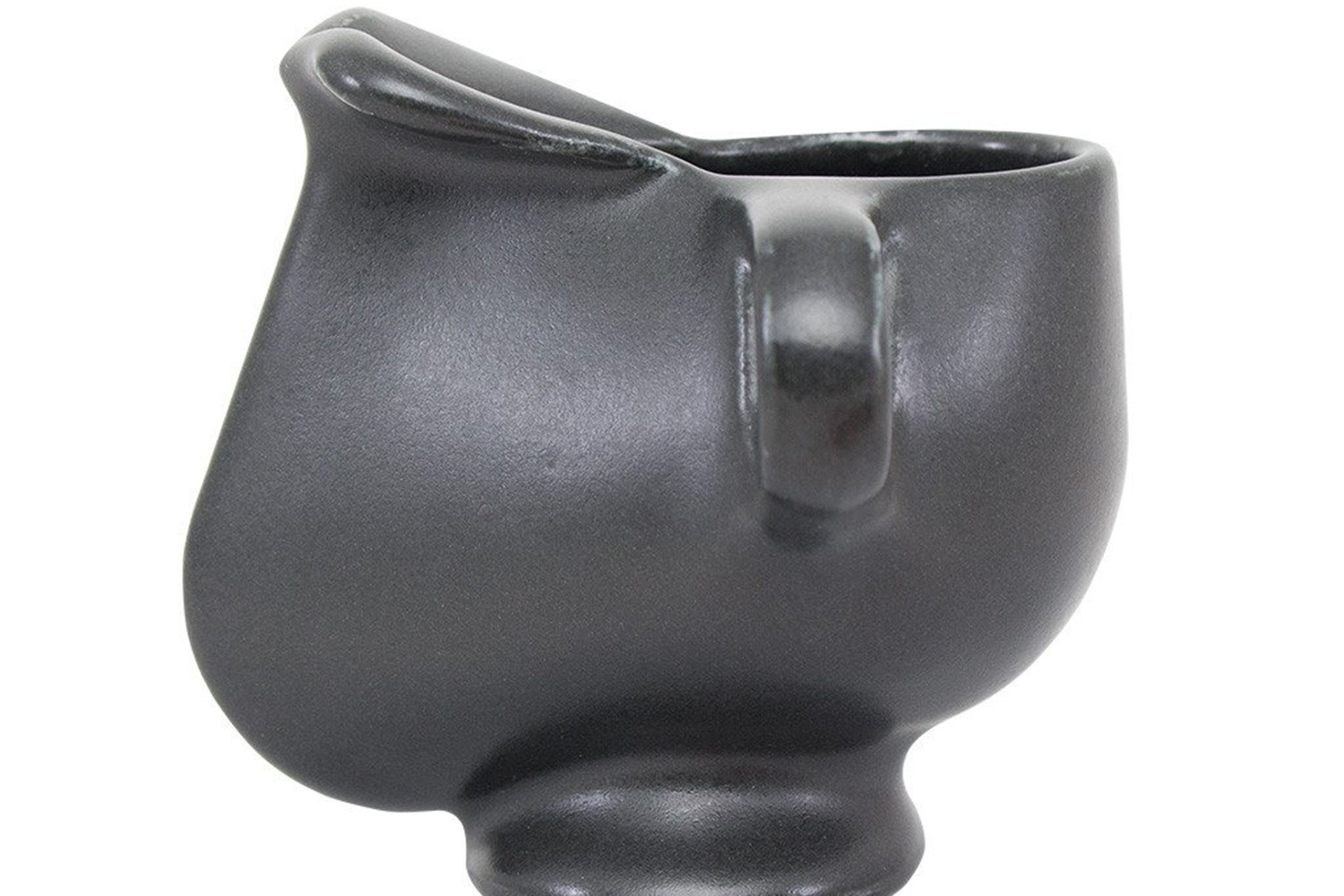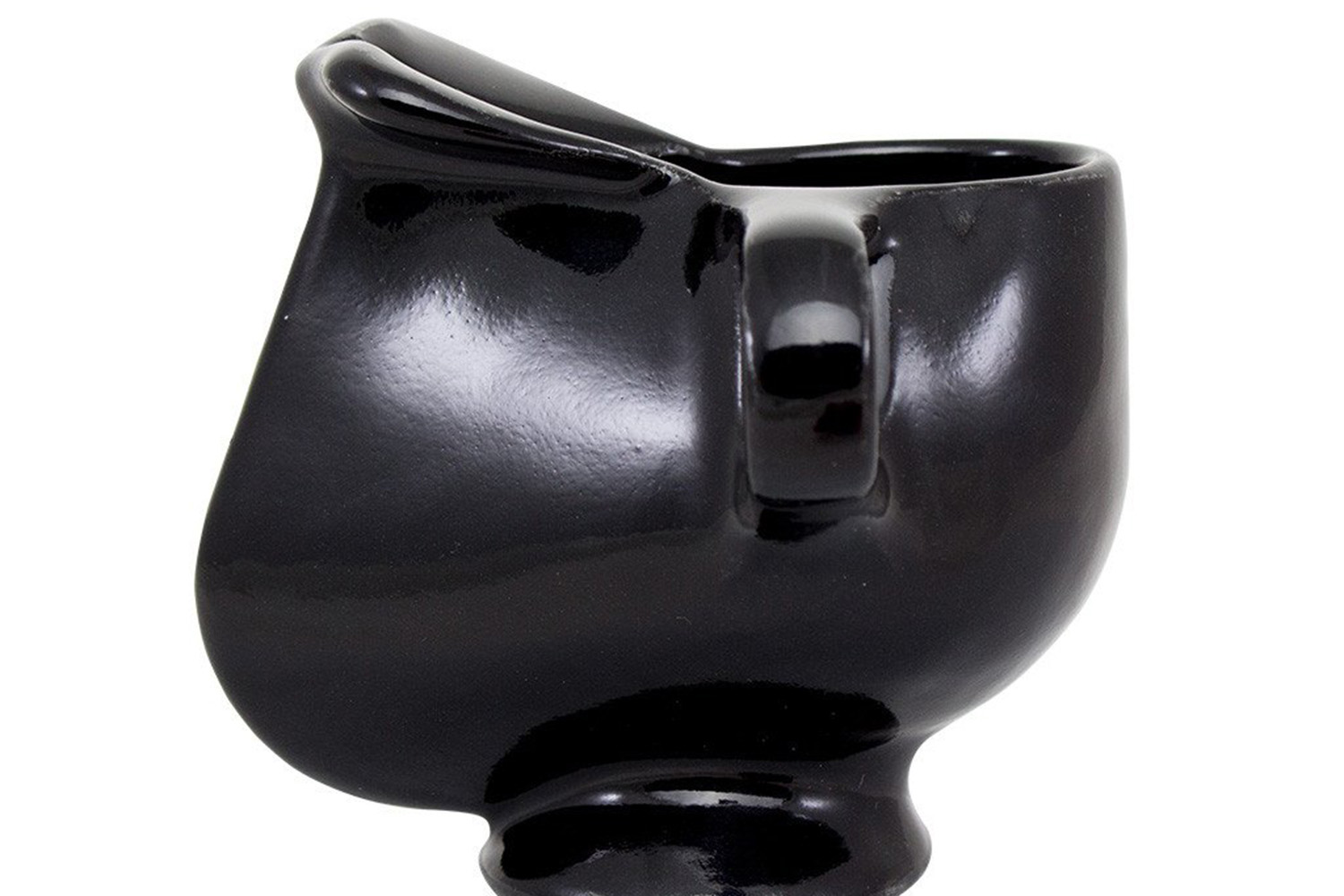The space cup design originated in 2008 when NASA astronaut Don Petit asked IRPI to help devise a new way for sipping drinks in space. For decades, astronauts drank from pouches with straws and Petit was apparently sick of it. With IRPI’s guidance, the astronaut crafted a makeshift mug out of materials aboard the ISS, rolling transparency film into an unusual shape that exploited the mechanics of surface tension, wetting, and container geometry to simulate how drinks are sipped in Earth-like gravity.
When Italy sent an espresso machine to the station so an Italian astronaut could enjoy the taste of home, IRPI’s Mark Weislogel realized it was an opportune time to transform the old design into an actual product that could function in zero gravity and meet the strict requirements for ISS.
The company developed a cup that passed the strict regulations for ISS instruments including off-gasing, food safety, flammability, and transparency tests. They then tested the design in the Dryden Drop Tower at Portland State University and NASA approved, commissioning six, 3D-printed space cups to be shipped to the ISS for use in the 2015 Capillary Beverage experiment. “Before the launch of the cups, it was not ok to have scalding drinks floating in open containers in the space station,” Weislogel told Digital Trends, “but now it is.”
Spaceware, a spinoff from IRPI, is now selling two versions of the specially designed space mugs. The official, 3D-printed, flight-certified, NASA-approved mug will set you back a whopping $500. It isn’t for everyday use — it isn’t even dishwasher safe. Rather, the company writes, “Think of this as a bit of art, science, and space history all in one.” But, if you’re pockets aren’t that deep, there’s a porcelain version available in four colors for $75.
Spaceware is now looking to develop a few more kitchen tools for use in the ISS, including a soup bowl, spoon, and tea cup. “Just think about how such things will function when gravity is turned off,” Weislogel said. “These are going to look bizarre, but the function will make you smile.”
